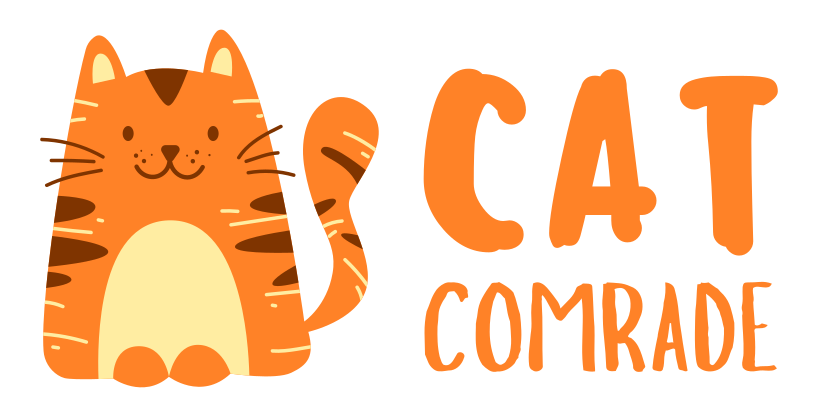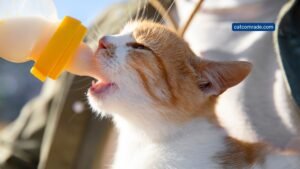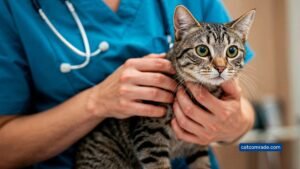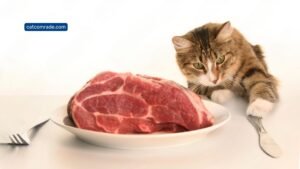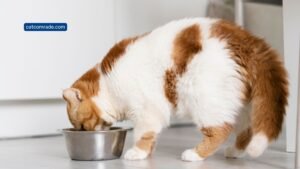Can I Feed My Cat Cheese: Surprising Facts Every Owner Must Know
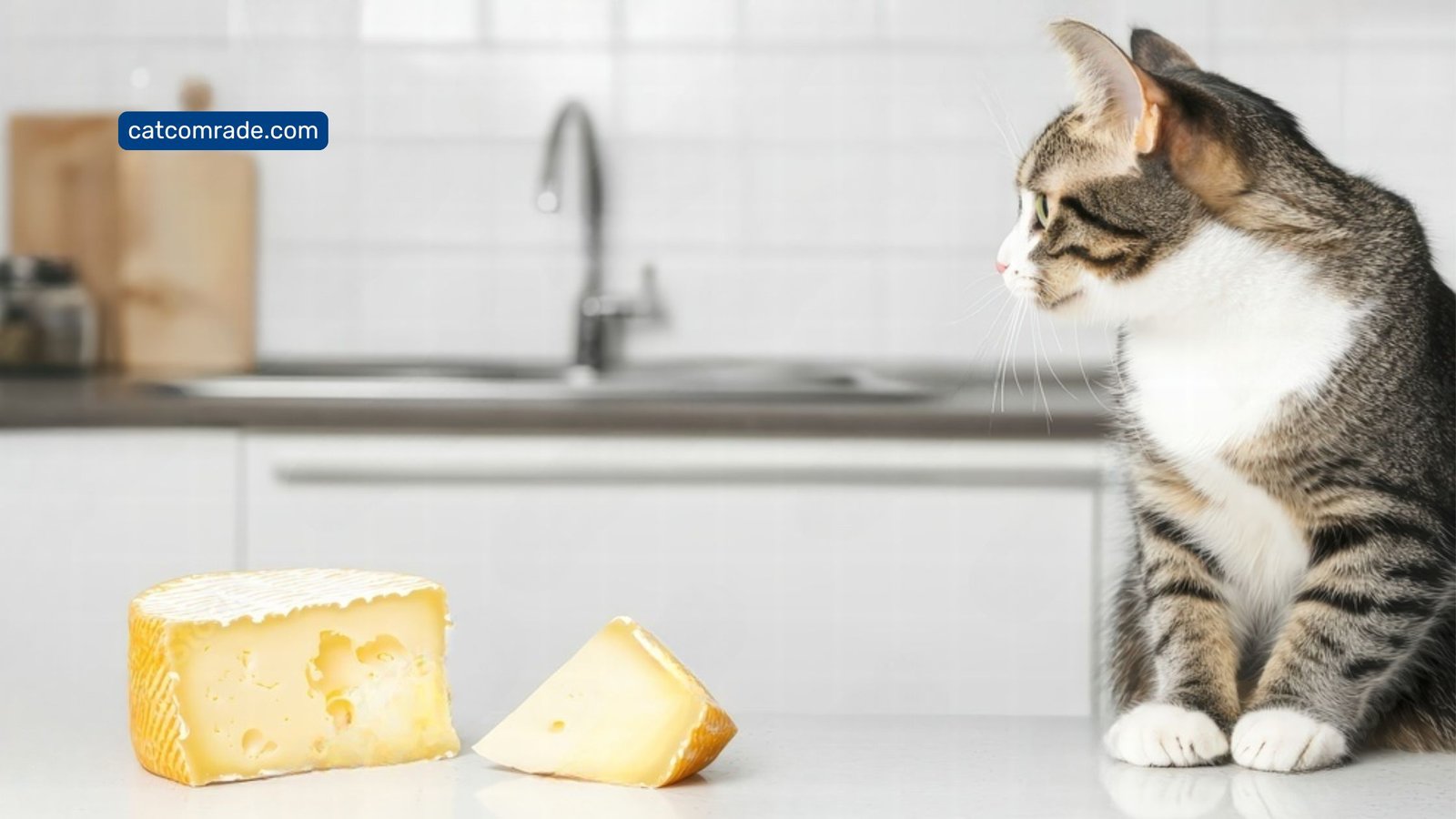
Are you wondering if it’s safe to share your cheese with your cat? You’re not alone.
Many cat owners ask, “Can I feed my cat cheese? ” It seems like a tasty treat that your furry friend might enjoy, but is it really good for them? Before you offer that slice, it’s important to know the facts.
Keep reading to discover what cheese can do to your cat’s health and whether it’s a smart choice for their diet.
Your cat’s well-being depends on the right answers.
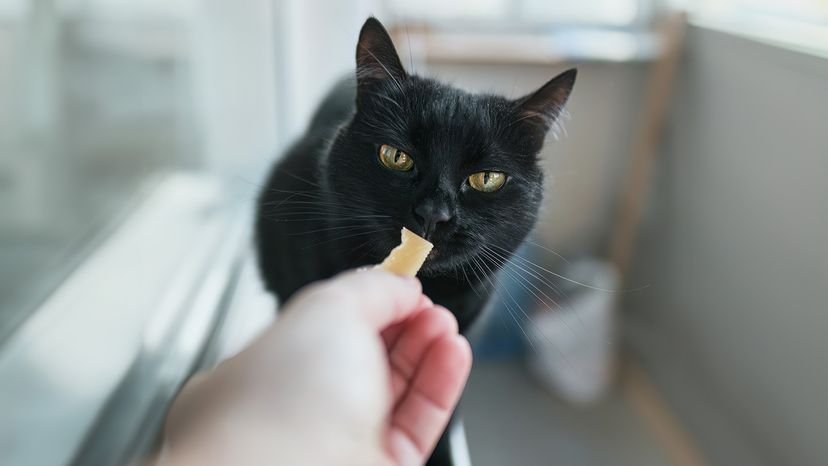
Credit: animals.howstuffworks.com
Cats And Dairy
Cats and dairy have a long history together. Many people imagine cats loving milk and cheese. This idea comes from cartoons and old stories.
But the truth is different. Most adult cats do not digest dairy well. This section explains why cats and dairy don’t always mix well.
Natural Diet Of Cats
Cats are carnivores. They eat mainly meat in the wild. Their bodies are designed to get nutrients from animal proteins. Cats do not have the enzymes needed to break down dairy sugars fully.
Their natural diet contains little to no dairy. Feeding dairy is not necessary for their health.
Lactose Intolerance In Cats
Most adult cats are lactose intolerant. This means they cannot digest lactose, the sugar in milk and cheese. Drinking milk or eating cheese can cause stomach upset.
Symptoms include diarrhea, gas, and vomiting. Kittens can digest lactose better but lose this ability as they grow. Giving dairy to cats can harm their digestion and comfort.

Credit: welovecatz.hu
Is Cheese Safe For Cats?
Cats are curious animals and may show interest in cheese. Many pet owners wonder if cheese is safe for their feline friends.
It is important to know how cheese affects cats before feeding it to them. Some cheeses can be okay in small amounts, but others might cause problems.
Nutritional Content Of Cheese
Cheese contains protein, fat, calcium, and vitamins. These nutrients can benefit cats in tiny amounts. Protein helps build strong muscles. Fat provides energy and keeps the coat shiny.
Calcium supports healthy bones and teeth. But cheese also has lactose, a sugar that many cats cannot digest well. Lactose can cause stomach upset and diarrhea in some cats.
Cheese is also high in fat and salt, which may not be good for cats in large amounts.
Common Types Of Cheese And Their Effects
Some cheeses are softer and easier for cats to eat, like mozzarella or cream cheese. These have less salt but still contain lactose.
Hard cheeses like cheddar or Swiss have less lactose but more salt and fat. Blue cheese and cheeses with herbs or spices may be harmful to cats.
These can upset the stomach or cause allergic reactions. Plain cheese in small pieces can be an occasional treat. Avoid giving cheese often to keep cats healthy.
Potential Risks Of Feeding Cheese
Cheese might seem like a tasty treat for your cat. Many cats enjoy its flavor and texture. Yet, feeding cheese to cats has risks that pet owners should know. These risks can affect your cat’s health in several ways.
Digestive Issues
Cats often lack enough lactase enzyme. This enzyme helps break down lactose in dairy. Cheese contains lactose, which can cause stomach upset.
Symptoms include diarrhea, gas, and vomiting. These digestive issues may make your cat feel sick.
Allergic Reactions
Some cats have food allergies. Cheese can trigger allergic reactions in sensitive cats. Signs include itching, redness, and swelling.
Allergies might also cause skin problems or ear infections. Watch your cat closely after giving cheese.
Obesity And Weight Gain
Cheese is high in fat and calories. Feeding cheese often can lead to weight gain. Overweight cats face health problems like diabetes.
Keep cheese treats small and rare. Balance your cat’s diet to avoid obesity.
Benefits Of Cheese For Cats
Cheese can be a tasty snack for cats. It has some benefits that might make it a good occasional treat. Cats enjoy the flavor and texture of cheese, which can help with bonding during feeding time.
Feeding cheese in small amounts can add variety to your cat’s diet without much risk.
Occasional Treats
Cheese works well as an occasional treat. It should not replace a cat’s regular food. Small pieces of cheese can be a nice reward during training or play.
Treats like cheese help keep your cat interested and happy. Always offer cheese in moderation to avoid health problems.
Protein And Fat Content
Cheese contains protein and fat, which cats need for energy. Protein helps build strong muscles and keeps cats healthy. Fat provides energy and supports skin and coat health.
These nutrients in cheese make it a richer snack than many other treats. Choose cheese with lower salt and avoid giving too much.
How To Safely Offer Cheese
Offering cheese to your cat can be a fun treat. Yet, safety is key. Cats digest some foods differently than humans.
Cheese should never replace a balanced diet. Learn how to give cheese safely and keep your cat happy.
Portion Control
Small amounts of cheese are best for cats. Too much can upset their stomach. A pea-sized piece is enough.
Treats should not make up over 10% of their daily food. Always start with tiny bites to see their tolerance.
Choosing The Right Cheese
Pick cheeses low in lactose like cheddar or Swiss. Avoid blue cheese or any moldy types. Plain cheeses without herbs or spices work well.
Stay away from salty or flavored cheeses. Fresh, simple cheese is easier for cats to digest.
Monitoring Your Cat’s Reaction
Watch your cat after giving cheese. Look for signs like vomiting or diarrhea. If any problems appear, stop feeding cheese immediately.
Some cats are lactose intolerant and cannot handle dairy. Always check with your vet if unsure.
Alternatives To Cheese Treats
Cheese may not be the best treat for cats due to lactose intolerance. Many cats struggle to digest dairy products, causing stomach upset.
Thankfully, other treats provide safe, tasty alternatives. These options keep cats happy and healthy without risking digestive problems.
Healthy Cat Snacks
Fresh meat is a favorite snack for most cats. Small pieces of cooked chicken or turkey work well. Avoid seasoning or sauces.
Some cats enjoy plain cooked fish like salmon or tuna. Offer tiny bits to prevent overeating.
Plain pumpkin or cooked carrots can be interesting treats too. These snacks add nutrients and variety to your cat’s diet.
Commercial Treat Options
Many stores sell treats made just for cats. Look for products with natural ingredients and no artificial fillers. Freeze-dried meat treats provide pure protein.
Soft treats with vitamins support overall health. Some treats help clean teeth and freshen breath. Always check ingredient lists. Choose treats suitable for your cat’s age and health condition.
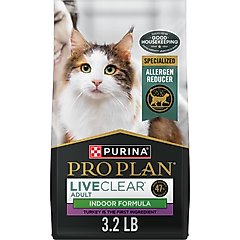
Credit: www.petmd.com
Frequently Asked Questions
Can Cats Digest Cheese Safely?
Most cats are lactose intolerant, meaning they struggle to digest cheese. Feeding cheese in small amounts is usually safe but not recommended regularly.
What Are The Risks Of Feeding Cheese To Cats?
Cheese can cause digestive issues like diarrhea and upset stomach in cats due to lactose intolerance. It may also contribute to obesity.
How Much Cheese Is Safe For Cats To Eat?
Cheese should only be an occasional treat, not more than a small cube or less. Moderation is key to avoid health problems.
Are Some Cheeses Better For Cats Than Others?
Low-lactose cheeses like cheddar or Swiss are generally better choices. Avoid moldy or flavored cheeses as they can be harmful.
Conclusion
Cats can eat cheese, but only in small amounts. Too much cheese may upset their stomach. Many cats are lactose intolerant and feel sick after dairy.
Cheese should never replace a cat’s regular food. Treat cheese as an occasional snack, not a meal.
Watch your cat closely for any bad reactions. Always choose plain cheese without added flavors or spices.
Feeding cheese carefully keeps your cat happy and healthy. Remember, their main diet must be balanced and made for cats. Cheese can be a small, tasty treat sometimes.
